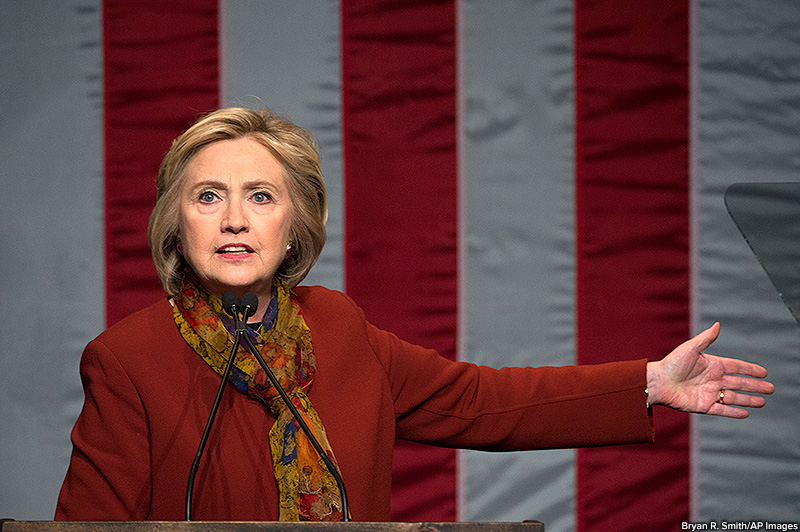
Learn More About Hillary Clinton
Earlier in the campaign, Election Central did a profile of Democrat Bernie Sanders. While much has been written about his opponent, Hillary Clinton, we feel this is a good time to reintroduce you to the former First Lady, Senator and Secretary of State. Let’s take a closer look at Clinton’s politics, qualities and opportunity to make history.
Qualifications
Born in suburban Chicago in 1947, Hillary Rodham seemed destined for great things. She graduated at the top of her Wellesley class (delivering the commencement address) and went on to Yale Law School. It was there that she met (and later married) Bill Clinton. When he became governor of Arkansas in 1979, she maintained a successful law practice while supporting various causes of her husband’s administration.
Hillary became First Lady when Bill served as President of the United States from 1993 to 2001. Universal healthcare was her major initiative during his terms. In 2000, she was elected to the U.S. Senate, representing New York, and won re-election in 2006. In 2008, she sought the Democratic nomination for the presidency, ultimately losing to Barack Obama. He asked her to serve as Secretary of State, which she did from 2009 to 2013. After much speculation, Clinton formally announced her candidacy for the 2016 presidential election in April of 2015.
Positions
Clinton has characterized herself as a “modern progressive,” which means that she believes in the rights of the individual, but she believes society functions better when everyone works together. Others have called her a “centrist,” which some describe as moderate or compromising and others call a political ideology based on pragmatism and common sense.
Clinton, like many members of the Democratic Party, supports combating climate change, argues for stronger gun control laws, supports affordable healthcare that is available for all American citizens, and speaks out in favor of social, economic, and civil equality for many segemtns of minority population groups.
Some of the other issues Clinton supports are as follows: campaign finance reform; paid family and medical leave for everyone; combating addiction through a combination of prevention, treatment and criminal justice reform; combating ISIS through the use of regional troops. She released a detailed proposal on education called The New College Compact, which includes a plan to simplify financial aid, enable those with existing student loan debt to refinance, and make colleges accountable for keeping costs reasonable. She has also made a pledge to make a cure for Alzheimer’s disease possible by the year 2025.
One way to assess what a candidate might do as president is to find out how they voted on particular bills (given he or she has been a part of Congress). In the two years that Clinton and opponent Bernie Sanders were senators at the same time (January of 2007 to January of 2009), they voted the same way 93 percent of the time. When they disagreed (totaling 31 Congressional votes), it was typically on issues of foreign policy and military use.
Related Links
You can learn a lot more about Hillary Clinton by visiting her campaign Web site. (Search for it using your favorite Web search engine.) But remember, that her site (and all other campaign sites for that matter) are designed to “sell the candidate” to the viewer. Read the information there with a critical eye.


